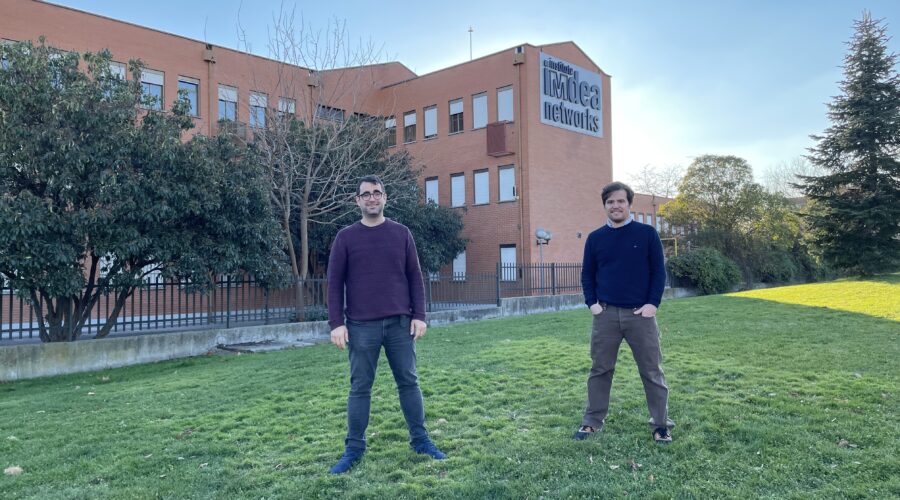IMDEA Networks

Narseo Vallina-Rodríguez and Guillermo Suárez-Tangil, awarded Ramón y Cajal research grants
Two researchers from IMDEA Networks Institute receive grants from the most competitive call for proposals to attract talent from experienced researchers at the national level
21 December 2021

IMDEA Networks researchers Narseo Vallina-Rodríguez, Research Associate Professor, and Guillermo Suárez-Tangil, Research Assistant Professor, have been awarded Ramón y Cajal grants from the Spanish Ministry of Science and Innovation. These grants promote the incorporation of national and foreign researchers with an outstanding career in R&D centers. They are grants for employment contracts, for the creation of permanent jobs, and their subsequent incorporation into the agents of the Spanish Science, Technology and Innovation System who are beneficiaries of these grants. This is a recognition of the work of technology transfer and the practical impact on society of institutions such as IMDEA Networks.
The selection is based on a rigorous process of competitive tender of candidates on the basis of their curricular merits and their ability to lead a line of research, according to the scientific and professional experience, as well as the independence of their career. In the case of Narseo Vallina-Rodríguez, Research Associate Professor and Research Staff at the International Computer Science Institute (ICSI, Berkeley), he highlights the importance of this distinction: “It is very satisfying to see how, at many levels, the hard work in the area of security and privacy is recognized, not only on my part but also on the part of my three PhD students at IMDEA Networks and my collaborators”.
Without neglecting the theoretical aspects, Vallina-Rodríguez highlights the work perspective of the research: “At a general level, my work is mainly focused on two research areas: network measurements and online privacy and security. The Internet is a complex and rapidly evolving ecosystem made up of thousands of technologies, billions of users, and actors of all kinds. As a result, regular users are exposed to many privacy and security threats, even without realizing it. In my research career, I have developed groundbreaking methodologies and tools to empirically study the Internet and mobile software, characterize the so-called data economy and the security and privacy risks inherent in digital products. My results have contributed to improve the security of the Android operating system or to inform regulatory actions”.
In the case of Guillermo Suárez-Tangil, Research Assistant Professor, his work is also related to improving the security and protection of Internet users. “The Ramón y Cajal panel praised my leadership in terms of actionable impact on society, which gives me a reinforced sense of reward. My background is characterized by more than six years of postdoctoral experience in international research at world-leading research centers (such as UCL or KCL). I am truly honored to be able to benefit from a mechanism that allows me to bring this talent back to Spain”, he says.
Suárez-Tangil’s career has developed in three main directions: cyber threats, cyber fraud, and cyber security, and such important support as these grants will allow further progress in protecting online communities. “In particular, several issues pose unique challenges. This is the case of smart assistants such as Amazon Echo (Alexa) or chatbots, now ubiquitous and seen as the source of future cyber threats. On the other hand, the proliferation of secluded anonymous places under the underground is enabling the core of current cyber-fraud. Finally, my latest research direction seeks better ways to protect users against online threats in social networks (e.g., hate or sexist attacks),” he stresses.
“The Ramón y Cajal will partially support my research for the next five years, which will allow me to continue doing what I love most: understanding how processes, systems, and networks work to find better ways to secure them. I am delighted to be able to continue my research under the umbrella of a prestigious fellowship that aims to consolidate early career researchers like me,” concludes Suárez-Tangil. All an important support that, as Vallina-Rodríguez comments, would be even more relevant if the authorities would increase the endowment: “It is still very limited compared to other European countries. More ambitious financial support for RYC actions would be a great catalyst for the Spanish scientific community”.



Recent Comments